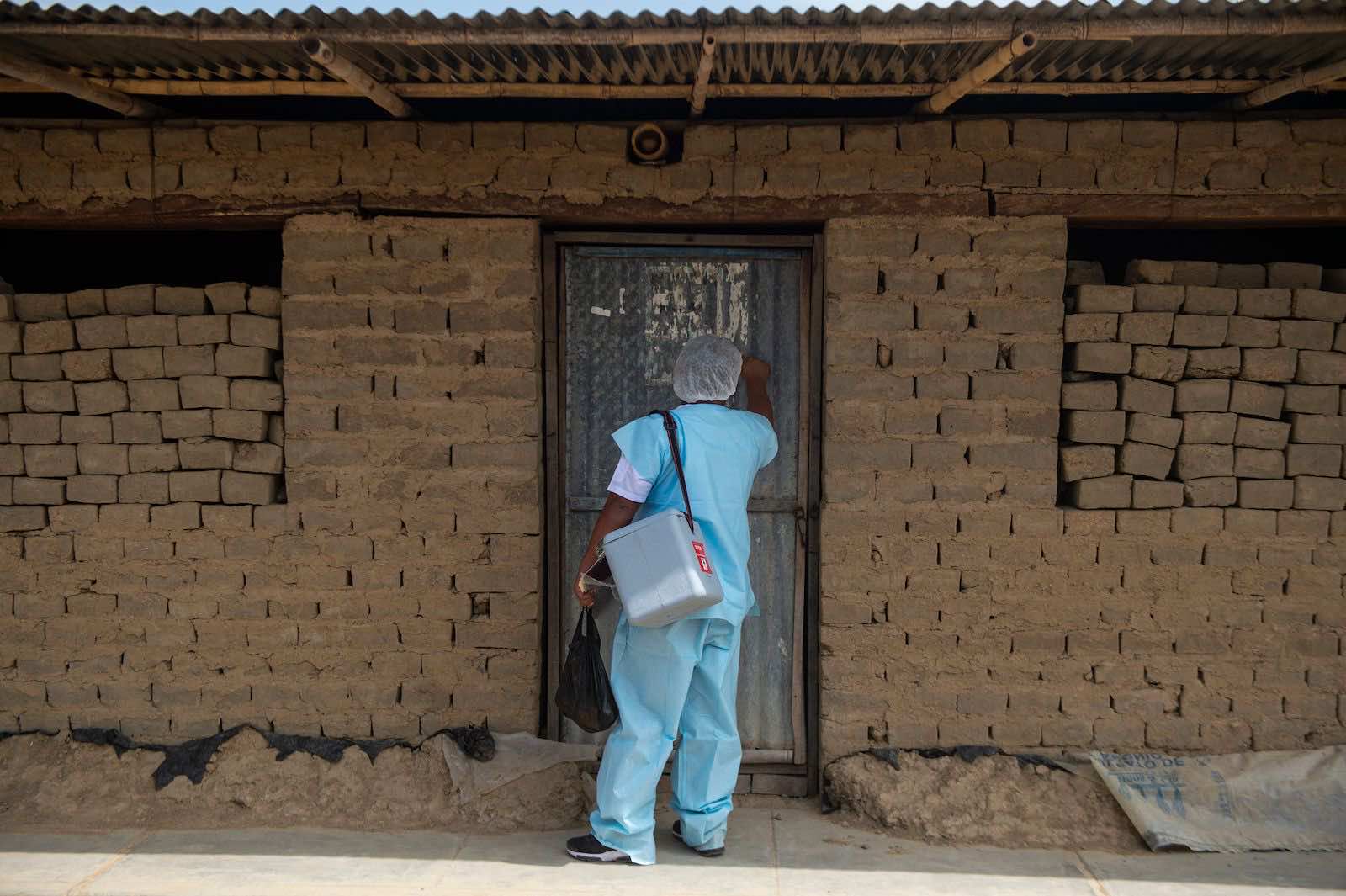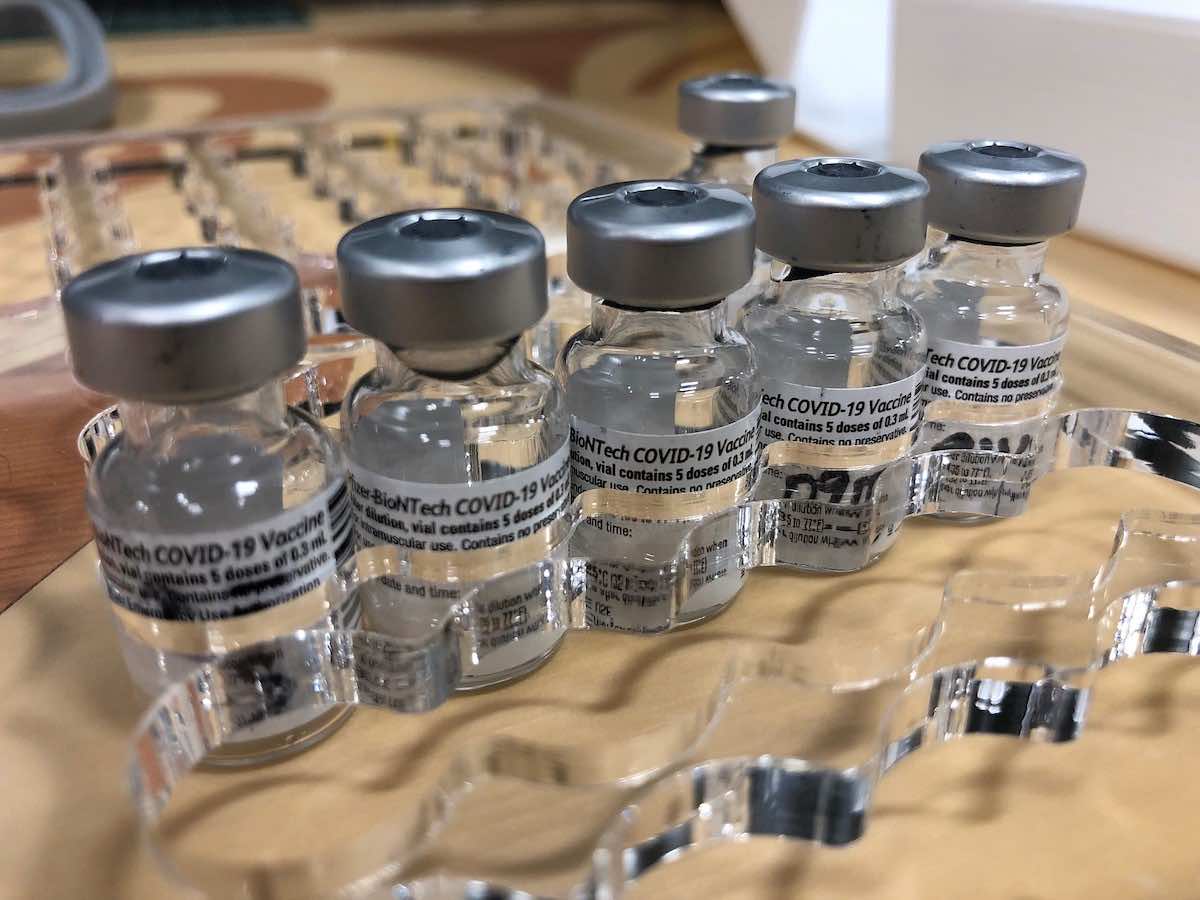NICHOLAS BUGEJA

As Australia emerges from its local state-based lockdowns – largely due to its high vaccination rates – many low-income countries in Southeast Asia and Africa remain at risk of further outbreaks of Covid-19. Despite a sluggish start to its vaccination campaign, Australia has achieved double-dose vaccine coverage of close to 80 per cent of the population, setting the country on the path to effectively managing the spread and severity of the virus. In contrast, fewer than 4 per cent of people in low-income countries, including Yemen, Madagascar and Liberia, have received a single vaccination dose. At the current rate, most low-income countries will not attain a 70 per cent vaccination rate until 2030.
Wealthy nations have consistently made use of their economic and political leverage to acquire surpluses of vaccine supplies. This was demonstrated by Australia’s purchase in August of 500,000 Pfizer vaccines from the COVAX facility, designed to facilitate vaccine access for developing countries. Low-income countries have had little capacity to obtain enough vaccines for their populations, and endured shortages of essential resources such as syringes, while assistance from the international community has produced limited success. For many of these nations, this has occurred against the backdrop of mass political instability and other humanitarian crises.
An ethical approach would entail a commitment to a moratorium on “booster” shots for wealthy nations until developing nations can provide, at a minimum, one if not two vaccination shots to the majority of its citizens.
For months, there have been calls for the international community to do more to vaccinate people in middle-and low-income countries. In September, United Nations Secretary-General Antonio Guterres said this inequity was a moral indictment on the world: “We passed the science test. But we are getting an F in ethics”. An open letter, endorsed by the World Health Organisation, the International Organisation for Migration and the United Nations High Commissioner for Refugees stated the “vaccine equity gap between wealthier and low resource countries demonstrates a disregard for the lives of the world’s poorest and most vulnerable”.
There now appears to be a greater push among the international community to “vaccinate the world”. Although, much of this appears motivated by nations’ self-interest. In what has been dubbed “vaccine diplomacy”, Australia has pledged to donate 60 million vaccine doses to countries in need. The vast majority of the 4.9 million doses Australia has donated so far were sent to important regional neighbours, including Indonesia and Papua New Guinea. Unsurprisingly, China has also been actively distributing vaccines in the Asia Pacific, seeking to bolster its ties in the region and to obscure the United States’ influence.
In the similar spirit of national self-interest, concerns have grown that mutations of Covid will emerge in developing countries and prove vaccine-resistant. A key takeaway from a recent report from Australian medical researchers the Burnet Institute is that two-thirds of epidemiologists surveyed believe that, without urgent international action, the virus is likely to mutate within a year, rendering the “majority of first-generation vaccines” ineffectual. This presents a serious danger to affluent countries, including Australia.

For months, there have been calls for the international community to do more to vaccinate people in middle-and low-income countries (Camosun College/Flickr)
While there are strong grounds for the world to take serious action to provide for global vaccine equity – adapted to prevent new strains and mutations of the virus – this sort of action should not be contingent upon it aligning with the self-interest of wealthy nations.
Foundational principles of ethics – espoused by different, and at times divergent, ethical and political theorists such as Amartya Sen, Peter Singer and John Rawls – would expect nations to pursue policies, agreements and action on Covid-19 vaccine distribution that serves the needs of countries and persons most vulnerable to the virus and its capacity to devastate national health systems. Considerations of national self-interest would have no role to play in this moral assessment.
Such an ethical approach would entail, for instance, a commitment to a moratorium on “booster” shots for wealthy nations until developing nations can provide, at a minimum, one if not two vaccination shots to the majority of its citizens. Overall, the people of South Africa, the Philippines and Iraq – countries with significant Covid-19 cases and low vaccination rates – have a greater need for vaccination supply than those, including Germany, Israel and France, which have begun offering booster shots to their citizens.
This transactional, self-interested approach to international affairs and relations is also seen in the spheres of foreign aid, action on climate change and issues of human rights violations. It does not necessarily preclude progress on these matters, as Australia’s program of “vaccine diplomacy” in the Asia Pacific illustrates. However, it means that international action can be sporadic, inconsistent and, ultimately, dependent on whether supporting urgent causes suits the national agendas of sovereign countries and governments.
In this regard, the standard approach of states to confronting international problems and crises clashes with ethical notions of fairness, equality and justice. Instead, it likely entrenches the structures of global inequality, bringing to bear a future where wealth, education and health disparity remain, and the impacts of climate change are felt most acutely by developing nations.
No comments:
Post a Comment